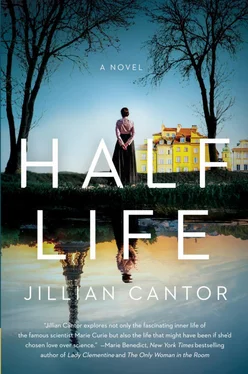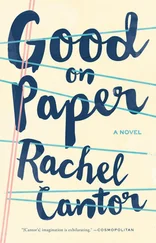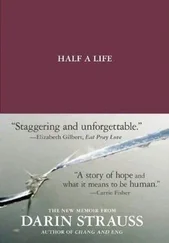“Come on,” Kadi said. “Mama told Papa we are going to visit friends, and he got us a large hotel suite. You could stay with us. It would be so much fun.”
I hesitated for a moment. The truth was, Kaz wouldn’t want me to go alone, without him. It would worry him. If I brought it up we would argue about it, and I would eventually end up giving in to what he wanted, making it easier not to bring it up at all.
But what if I went and didn’t tell him? I had gone by myself to visit Papa and Hela in Warsaw a few times, and we had already discussed that I might go for a visit in the next few weeks while the Kaminskis were away. Could I do that, and take a night or two away in Krakow, too, and Kaz would never have to know? It felt strange, the idea of lying to my husband, but weirdly freeing too, that I might have something all my own to look forward to. I really did want to watch Kadi play in Krakow. And it would be fun to spend a night or two in a hotel suite, away from the worry and the cold desperate hunger of my everyday life.
I wrote Hela and asked her thoughts, and also whether she would be willing to keep my secret from Kaz the next time she saw him.
Yes! Under one condition , Hela wrote back. I want to go to Krakow with you.
HOW WONDERFUL IT WAS TO BE WITH MY SISTER-TWIN AGAIN, just the two of us! We’d bought very inexpensive fourth-class tickets for the train, but it was only a six-hour ride, and we did not mind the floor of the railcar so much, especially as we sat shoulder to shoulder, our arms around each other. I leaned my head against her shoulder and inhaled the scent of her—still the same as when we were girls, lemons and corn poppies.
“You are going to love hearing Kadi,” I told her. “Her piano is so very beautiful.”
“Marya?” Hela said my name softly, a question.
“What is it?” I asked her.
“I need to tell you something, and I want you to know… I never want to upset you.”
“What’s wrong?” I was alarmed. “Is it Papa? Is he sick?”
She shook her head, inhaled, and then exhaled her confession in one fast breath: “Bronia invited me to come live with them in Paris, to help her out with little Lou and to enroll in some courses at the Sorbonne.”
“Oh,” I said. I’d never considered that Hela might want to go to Paris. We were almost the same age, but I’d always been the smarter one, ahead in all our studies. Hela had seemed content teaching at the girls’ gymnasium in Warsaw. I hadn’t expected her to ever desire more than that, and I felt ashamed that I had underestimated her ambitions.
But it all made sense, why Papa had ignored my request to use the Sorbonne money for Kaz, writing only about other things in his letters. Now, I understood. Papa was going to help Hela go to France, use the money to pay her tuition at the Sorbonne instead.
“Why would I be upset?” I finally said, swallowing hard. “I am surprised, yes. But… this sounds like a wonderful opportunity for you.”
Hela smiled and exhaled. “Yes, I will be very excited to live in France for a little while. To expand my mind.”
I didn’t ask her what she planned to study, the bitter taste so thick on my tongue that it was hard to speak, much less to breathe. The air on the train suddenly felt stale, suffocating as I tried to imagine both my sisters so far away.
I felt like I was slipping again, my footing uncertain. Bronia and I were the ones who were supposed to get the university education. Hela was the one content with Poland. Bronia and I married Kazimierzs; Hela was still alone, wanting. And what was I even doing here now, on a train to Krakow, wrapped up in a lie to the one person who was still completely mine in Poland?
“And perhaps you and Kaz will join us soon, too, and all three of us sisters can be together again?” Hela said, her songbird voice light and hopeful.
“Perhaps,” I said softly, my response swallowed by the noise of the train. Suddenly Paris felt further out of my reach than ever before.
Paris, France, 1895
“Marry me,” Pierre says, out of nowhere, one afternoon in the lab in early March.
We’d been in the middle of a conversation about alloy steel, as I hunch over a piece of it, heating it with a fire iron. I’m wearing my dirty linen smock and a pair of lab glasses much too big for my small face. They’re made with a man in mind, and it’s dreadfully annoying, how I must continually push them up the bridge of my nose as they slip down, again and again.
This is the third time Pierre has repeated such nonsense since I’ve returned to Paris after a summer back in Warsaw visiting with Papa and Hela. Papa is doing quite well, and Hela has found a lovely position teaching at a girls’ school. She’s even recently met a man, a photographer named Stanislaw, whom I suspect she might have feelings for, as she could not stop talking about how beautiful his work is throughout my entire visit. It was hard for me to leave them again, return to Paris, and I even considered staying in Poland for good. But there is much more to be done in the lab—before I left, Pierre and I had stumbled into a fascinating experimentation on paramagnetic properties and temperature variance. Pierre had written me daily while I was away, reminding me of all the work I must return for.
I’d moved my equipment into Pierre’s lab a few weeks after we met last spring, and from there Pierre and I quickly became good working partners. He was happy to assist with my study, performing any tasks I asked of him, but also offering his intelligent and unassuming suggestions. I’ve been doing the same in return with his work on temperatures. Working in the lab with him, I am not a woman and he is not a man—we are just two scientists who respect each other’s minds. Which is why his marriage proposals have caught me so much by surprise. And I already told Pierre the last two times he’s asked: I cannot marry you.
For one thing, he is French; he belongs in France. I am a Pole, I belong in Poland and will eventually move back to work there and be closer to my family. But for another thing, after Kazimierz, I promised myself I would never get engaged again. I am bound to live the life of a scientist now, not of a wife. It doesn’t matter how much I respect Pierre, or even enjoy his company, our marriage is an impossibility, any way I look at it.
“Consider it, Marie,” he prods again now. “We would be so wondrous together, you and I.”
Wondrous. It is so very Pierre to make us sound whimsical, instead of logical, scientific. We are lab partners, not lovers.
“You are like lodestone, and I am your magnet.” He’s still talking.
Lodestone, the most magnetic of all the materials we have tested. The magnet cannot stay away, even from an almost unexplainable distance. I have to bite my lip to keep from smiling. “Pierre.” I shake my head, without looking up from the fire iron. The silly glasses slide down the bridge of my nose and I push them back up, again. “We’ve been through this already.”
“And nothing you’ve told me has changed my mind. I still want to marry you.”
I glance up from my steel. Pierre has crossed his arms in front of his chest, resting them across the vest of his well-tailored suit. He is such a stubborn, beautiful, brilliant man. For a second, I cannot look away.
“You can be a scientist and my wife,” he says. “I fully support you and your work, you know I do. I want us to work together, to continue to be partners in the lab, yes, but everywhere else too.”
I enjoy working with him in a way I’ve never enjoyed working with anyone before. Science burns brighter; my mind feels even more alive. But that doesn’t mean we must get married. “We already are lab partners,” I say.
Читать дальше









